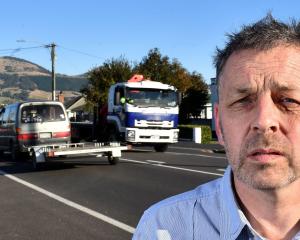Prof Thomas Veblen is a forest ecologist at the University of Colorado and is vice-president and one of the founders of the Southern Connection.
This is an international collaboration involving biologists and geologists whose research interests include the southern hemisphere.
More than 300 people from about 35 countries have this week attended the group's latest five-day conference, which focused on ''Southern Lands and Southern Oceans: Life on the Edge?'' The gathering ended at the University of Otago yesterday. Prof Veblen, who has also worked in Chile and New Zealand, has a specialty research interest in wildfire issues.
Giant bushfires were already raising serious concerns about the viability and sustainability of settlements in some parts of Australia, he said. The present situation in Australia provided a preview of what life would be like on the West Coast of the United States as global warming continued, he said.
In many cases, firefighting ''first responders'' were putting their lives at risk and some people were already living in ''extremely dangerous'' locations, with a high risk of fire.
He was trying to encourage authorities on the US West Coast to ''restrict future residential development in these areas''.
''Enormous'' costs were involved in any measures to try to reduce the fuel loading in such wildland areas.
Prof Mary Kalin Arroyo, a New Zealand alpine ecologist who has been living and working in Chile for more than 30 years, said the Dunedin conference had been highly successful.
Southern hemisphere scientists had been increasing the effectiveness of their research on climate change by collaborating in multi-country groupings within the region, she said.












